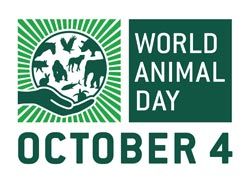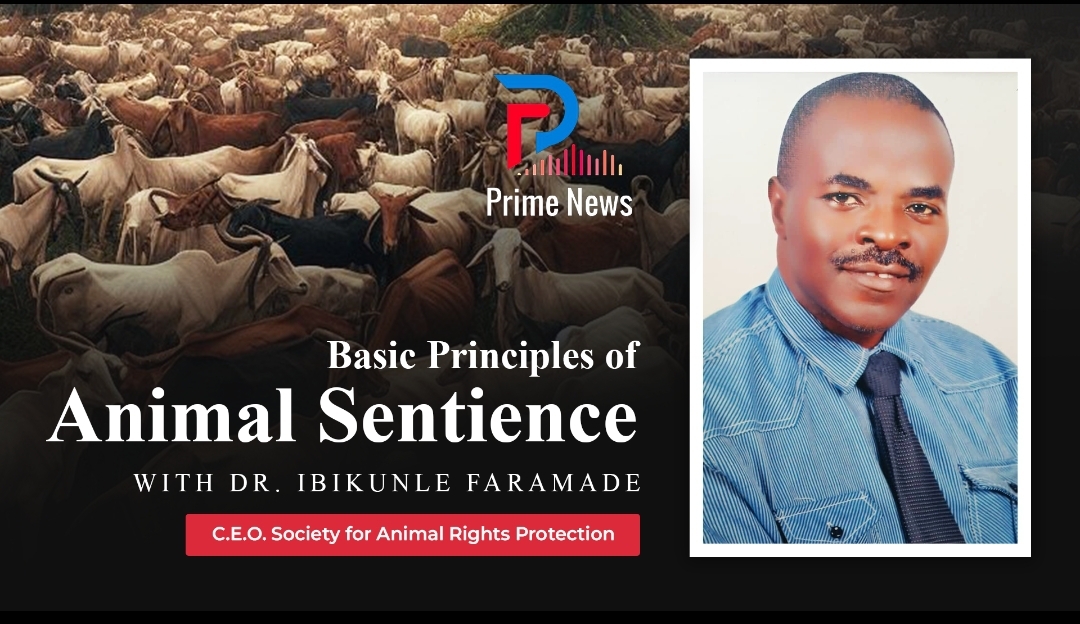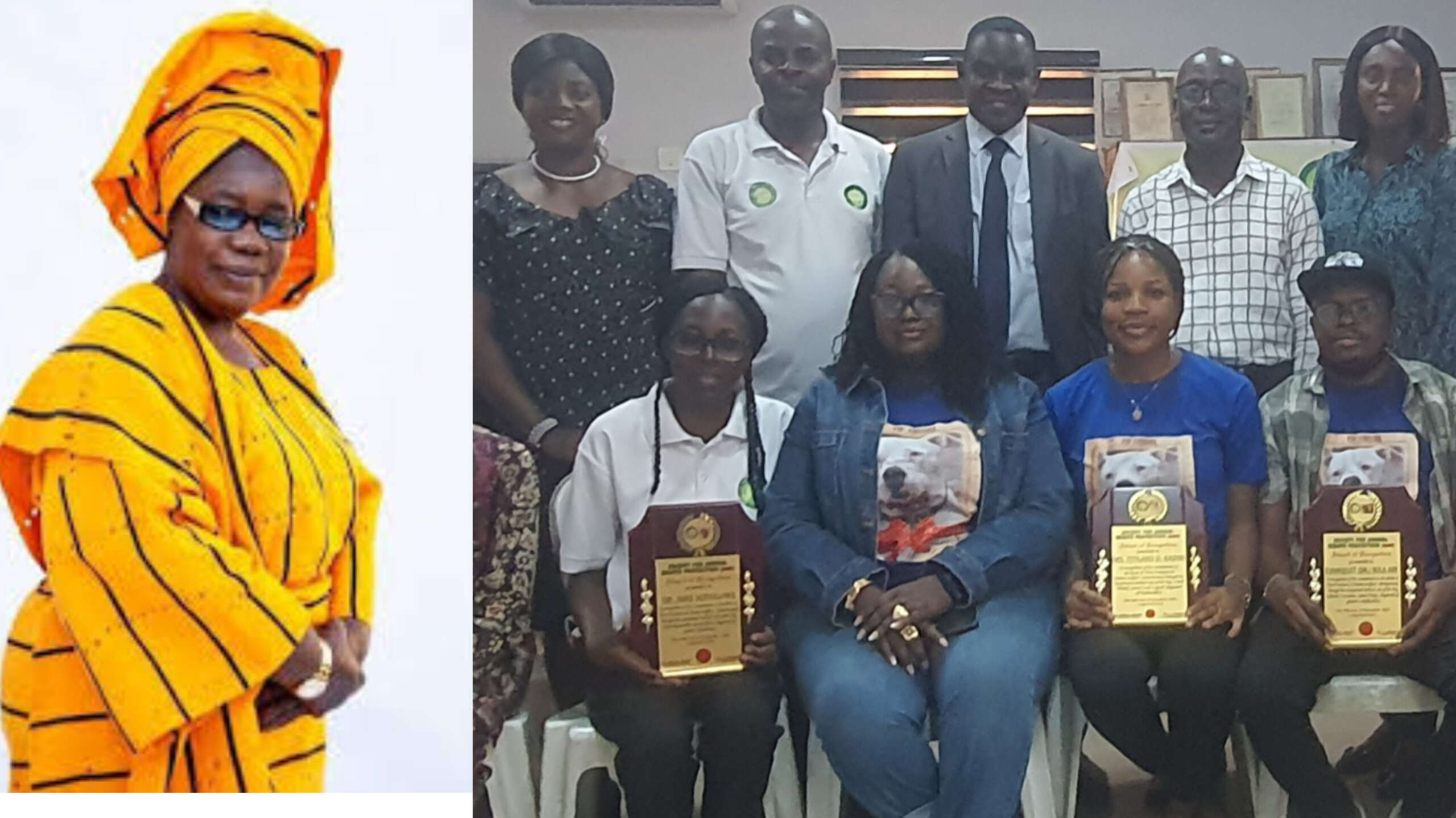By Dr Ibikunle Faramade
 The world animal day was the initiative of Heinrich Zimmermann, who organized the first World Animal Day on March 24, 1925 at the Sport Palace, Berlin, Germany. As a mark of honor for the patron saint of ecology, the day was moved to October 4, to align with the feast day of Saint Francis of Assisi, starting from October 4, 1929. It was later unanimously endorsed as an international celebration in May 1931 at a Congress of the International Animal Protection Congress in Florence, Italy.
The world animal day was the initiative of Heinrich Zimmermann, who organized the first World Animal Day on March 24, 1925 at the Sport Palace, Berlin, Germany. As a mark of honor for the patron saint of ecology, the day was moved to October 4, to align with the feast day of Saint Francis of Assisi, starting from October 4, 1929. It was later unanimously endorsed as an international celebration in May 1931 at a Congress of the International Animal Protection Congress in Florence, Italy.
Since then, different global theme have been promoted to draw attention of all and sundry to the plight of animals and why animal conservation, animal rights and welfare etc should be improved upon globally. For example, in 2021, the theme was Forest and Livelihoods: Sustaining People and Planet, in 2022, the theme was a Shared Planet, in 2023, Great or Small, Love them All.
This year, the global theme “The World is Their Home Too” could not have been crafted at a better time. It is very germane. It is a strong message to humanity to pause, consider and understand their responsibilities, not to further complicate the widening gap of ecosystem in-balances. Despite the identified challenges and the solution proffered through the Sustainable Development Goals of the United Nations, Life on Earth is under pressure. By the end of the century, half of all species could be facing extinction.
The rate of species’ extinction is up to 10,000 times higher than the natural, historical rate. In fact, scientist have described the biodiversity crisis as worse than the threat from climate change. Over 37,000 species are directly threatened with extinction. For example, 14% birds, 26% mammals, 36% Sharks and rays and 41% Amphibians. Most of the drivers, making animals to go to extinction are anthropogenic (man-made). According to Professor Daniel Rothman of the Massachusetts Institute of Technology, “the Earth is set to cross a ‘threshold of catastrophe’ by the end of the century because of fossil fuels”
What are the human activities that have not shown enough recognition of the fact the world is the home of animals too? These include; exploitation of animal resources in form of hunting and fishing, habitat fragmentation and degradation, habitat loss, climate change, increase in population of invasive species, pollution, (land, water, air) and diseases.
If the current ugly trend is not halted, in the next forty years, the following animals may have done into extinction ; polar bear, chimpanzee, elephant, snow leopard, tiger, mountain gorilla, orangutan, giant panda, rhino, koala bear to mention but a few.
The alteration in the balance of primary consumers, secondary consumers and tertiary consumers could spell doom for humanity. This is because ecological imbalances of these species would alter their roles in the maintenance of population order among these animals with grievous consequences.
All domestic and wild animals are entitled to sustainable space with humans on the planet and those spaces should be respected for the sake of mutual benefits. The world heritage is a shared asset belonging to humans and animals with humans leading the park. Can you imagine a world without vultures, owls and bats? Can you imagine a world without pangolins? Without bees, butterflies and other pollinating insects, humanity may face unimaginable existential threat due to crop infertility!
In recognition of these and more, what should we do to ensure that indeed the world is equally a home for animals?
- There should be more advocacies to reduce anthropogenic (human) activities that further push animals into the edge of the precipice of extinction.
- The rate of deforestation should be halted. Afforestation and reforestations should be encouraged to compensate for habitat loss due to desertification etc.
- Urbanization and urban renewal programs should be made to follow the principles of Sustainable Development Goal 11(incorporating urban green, urban agriculture, and eco-friendly means of transportation etc.) to reduce habitat pollution and habitat loss etc.
- Efforts should be made to take adequate care of the existing Wild Life Parks while creating new ones to improve conservation of biodiversity.
- Proliferation of estate development by commercial developers should be regulated to conform to acceptable standards, minimizing indiscriminate encroachment into animal habitats.
In the spirit of this year’s global theme, ‘The World is their Home Too’ let us know that the business of conservation of animal resources for environmental stability and sustainable development is an assignment for all and sundry. The understanding of the fact that the welfare and well-being of humans including our survival depend on the survival of animals should make us to do the needful.
Recently, the Society for Animal Rights Protection was at the vanguard of campaign against the destruction of the urban green at Agodi Garden, Ibadan to be replaced by a housing estate. Although the government remained adamant, citing security reasons, our contribution to preserve nature has been placed on record in that regard among other initiatives. We are resolutely determined to ensure that the lot of animals are improved upon to the benefits of humans and animals.
A stitch in time saves nine!
Dr. Ibikunle Faramade is a veterinary pathologist, sustainable development practitioner, animal welfare advocate and a lecturer at the Federal College of Animal Health & Production Technology, Apata. Ibadan. He’s the C.E.O of the Society for Animal Rights Protection, a non-profit and a non-governmental organization dedicated to the promotion of animal welfare, animal rights and prevention of cruelty to animals. animalrightsprotection2020@gmail.com , +2348028305284



